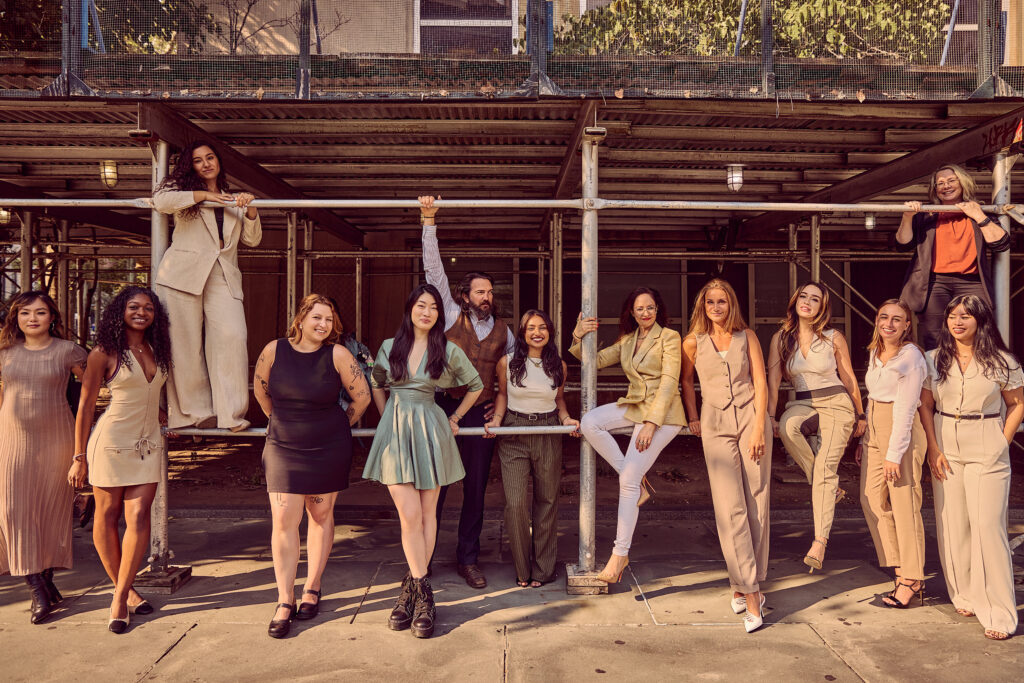Here is an op-ed Carrie had been asked to submit to the NY Times about Kanye West’s worrying behavior. They felt our take was too activist-y (?!), and with the very fast news cycle, we never placed it anywhere else.
When domestic abuse goes viral, don’t look away
Kim Kardashian is the star of a new reality show I advise our society not divert their eyes from.
It’s not the hot new series on Hulu, but a spectacle in which her participation is involuntary — the abuse by her ex-husband unfurling across social media. You can tune in live to see the maddening question so many survivors get asked: “Why did you stay for so long?” get answered in real time. Spoiler: it’s because the inevitable punishment for leaving the relationship was bound to be even worse than the day-to-day.
I’m the owner of the first law firm in the country entirely devoted to online and offline stalking and sexual exploitation, so I’ve seen thousands of times before that abusive relationships lead to abusive break-ups.
In all seriousness, what we’re seeing unfold is not ‘drama’ or ‘beef’ but a terrifying reality that many people face after a breakup.
Since when did moving-on make you fair game for stalking?
Breaking up is a fundamental liberty. However, it’s not always treated as one. And it should not matter how one feels about Kim Kardashian the celebrity to recognize that Kim Kardashian the human, like everybody, deserves a peaceful and private break up.
Kanye West, common to many abusers we see, is acting as though it is his right to keep his partner “his” and to publicly punish she who dares leave.
We’ve seen Kanye exhibit pretty typical out-of-control stalking behavior. The only thing that makes it irregular, and historically singular, is the scale of the public torture thanks to their profiles and behemoth social media presences.
- He cycles between grand gestures and threats. On Valentine’s Day he delivered a truckload of roses to her. Before and after, he published viciously on social media, imploring his 15.7million Instagram followers to “PLEASE BRING OUR FAMILY BACK TOGETHER.”
- He made himself unavoidable. Kanye paid $4.5 million for the home directly across the street from her.
- He weaponizes social media. West’s displays on Instagram became so harassing his account was suspended.
- He infringed on her physical space. He complained to his followers when security would not allow him passed the gate to Kim’s home.
- DARVO – Deny, attack, and reverse victim and offender. At various times, he has denied that he is responsible for the social media posts and has accused Kim of the very things he is doing – saying she is gaslighting him, withholding their children, and exploiting their families privacy.
- He intimidated her new partner. He incited his fans to go after Kim’s new partner, Pete Davidson. But then cautioned them not to “do anything physical” because he was going to “handle the situation myself.”
- He escalated when she made moves toward independence. Days after Kim became legally adjudicated “single” Kanye published a video of Pete beheaded.
- He threatened her career and then tried to make good on that. In the preview to her new show, Kim says Kanye had told her her career was over. It’s not, but certainly this national media story and the fear of what’s next is a serious distraction from her multi-billion dollar business and legal apprenticeship.
- He’s attacking those showing support. Last week Trevor Noah published an extraordinary and emotional segment highlighting break-up abuse, disclosing that his own mother was shot in the head by her ex. West turned his sites on Noah and incidentally it was his rhetoric toward Noah – and not Kim – that led to his suspension.
Stalking is a national concern. The most dangerous time in a relationship are the days and weeks following a break up. On March 15, 2022 I watched President Biden sign the reauthorization of the Violence Against Women’s Act after five years of it being inactive. When I started my law firm eight years ago, I never thought I’d hear a president talk about the harms of — stalking and blackmailing people with nude images – both common modes of coercion to keep people from leaving abuse and to punish them if they do. Biden said, “[w]e’re giving survivors real resources against abuse now. Ex-partners and stalkers who seek to humiliate and hurt them.”
This is what we owe to people leaving harmful relationships:
Safety – Physical and psychological safety are the single most important things. They need to go to a place their abuser won’t find them. They also should not worry alone. Loved ones should listen without judging, help them make a list of what they’re most worried about, what they’re most afraid the abuser might do, what might tempt them to return to the abuser, and how they’ll respond to those coercions.
Logistical help – People emerging from an abusive relationship need a place to stay where their ex won’t find them, money for a deposit at a new apartment, babysitting, petsitting, therapist and lawyer referrals.
Emotional support – Sometimes the scariest part of the break-up is not knowing what the ex will do next, whether they’ll make good on their threats, or whether you’ll withstand the manipulative excuses he or she has to regain contact. Monitoring incoming communications is important to assess safety risks, but that doesn’t mean the survivor needs to do it alone. Having a trusted friend or relative review the incoming texts and emails so he or she doesn’t have to is a huge help. Offers to help report the abuse to law enforcement or join at court dates is the biggest support imaginable.
Don’t be the hero – Many friends and especially new partners are tempted to play the protector. Direct engagement with the offender is completely inadvisable. Pete’s lapse in judgment texting Kanye he was “in bed with your wife” and then publishing the text thread with his disingenuous offers to help was red-flag behavior of its own. Not surprisingly, it escalated the problem.
Nondiscriminatory workplaces – In many states it is unlawful for employers to discriminate against crime victims and people getting out of abusive decisions. Employers must make reasonable accommodations so survivors can take time off work to seek legal services and attend court dates.
Forgiveness – Experts say it takes seven attempts to leave an abusive relationship. Those in the survivor’s orb can feel fatigued by the ups and downs, and betrayed if their loved one returns to the abuse. The shame of returning can cause a cycle of even further alienation and isolation that puts them further under the control of their partner.
Legal services – The most important thing we offer clients at our law firm is immediate family court protective orders. Within a day of filing, we can get our clients a court order we serve on their abuser that says they will be arrested if they try to communicate with or go near our client. If there are children in common, it will devise a temporary custody arrangement, usually forbidding immediate access to children in the petitioner’s possession. A court order will not stop a bullet, but violating an order of protection is a crime that law enforcers respond to even more swiftly than the underlying abuse. Many communities provide free legal services to victims of domestic violence who can’t afford lawyers.
Safe social media – we need our tech platforms to recognize they are weaponized by abusers. Social media companies like Facebook, Instagram, Snap and Twitter must remove abusive content and suspend abusers. Platforms should recognize family court orders as proof of abuse and communications from offender to victim afterwards, as violations of their terms of services. Incidentally, just one year after VAWA was enacted in 1994, came the Communications Decency Act, which has been the single greatest boon to abusers to punish their partners. The law, commonly known as Section 230 has given tech platforms a free pass to avoid responsibility when people abuse one another. Without fear of litigation, they can decide whether to host revenge porn even though it’s illegal in 48 states. Search engines like Google reserve the right to display links to harassing websites and nude images when a name is typed in.
Everybody should be free to end a relationship. And it’s on all of us to make breakups as safe and frictionless as possible.
Owner of Victims Rights law firm C.A. Goldberg, PLLC
Author of Nobody’s Victim: Fighting Psychos, Stalkers, Pervs, & Trolls
Sign up for our Newsletter and connect with us on LinkedIn, Instagram, Facebook, and Twitter, to stay up to date with important news and free resources.




